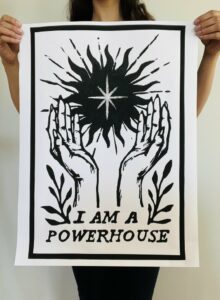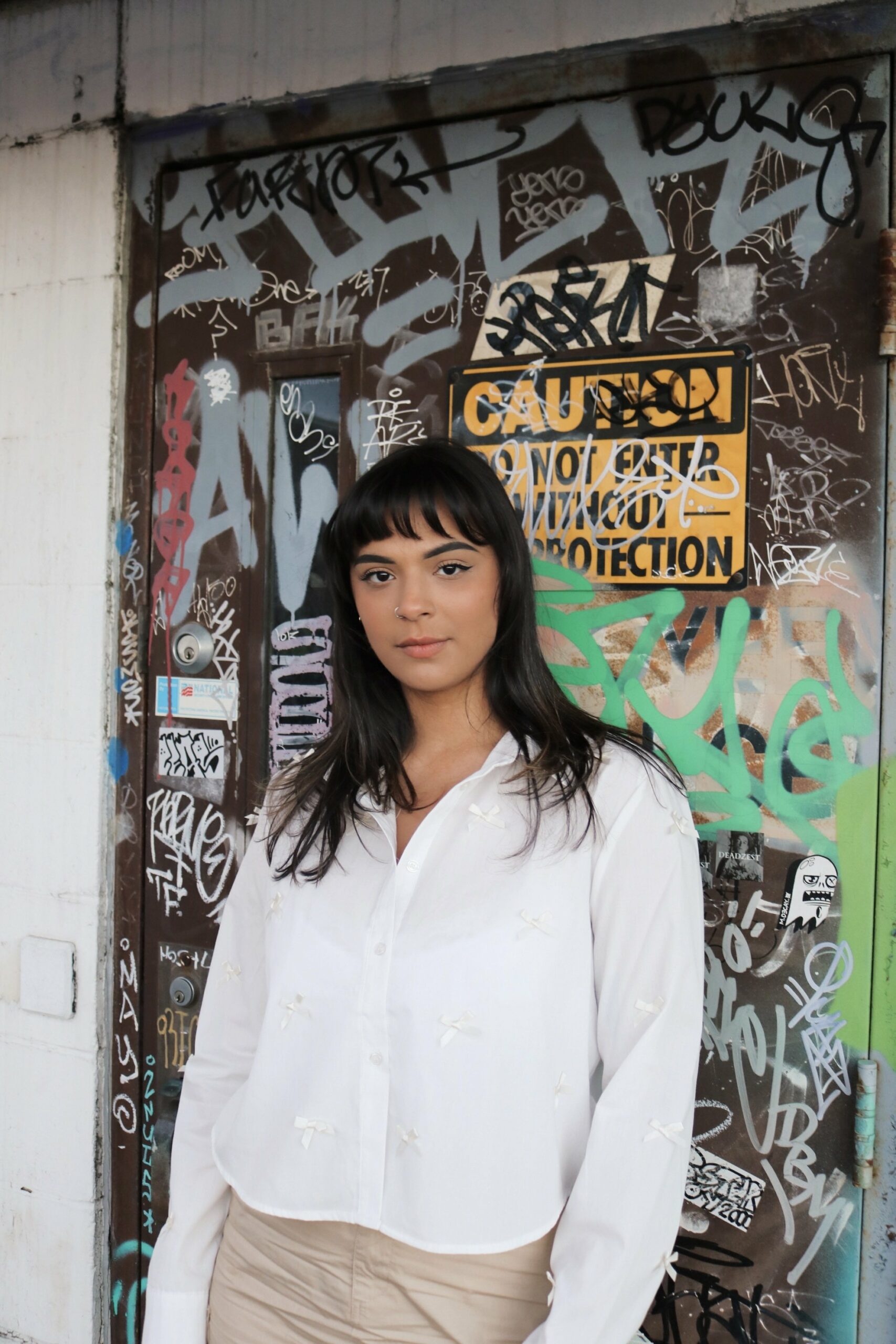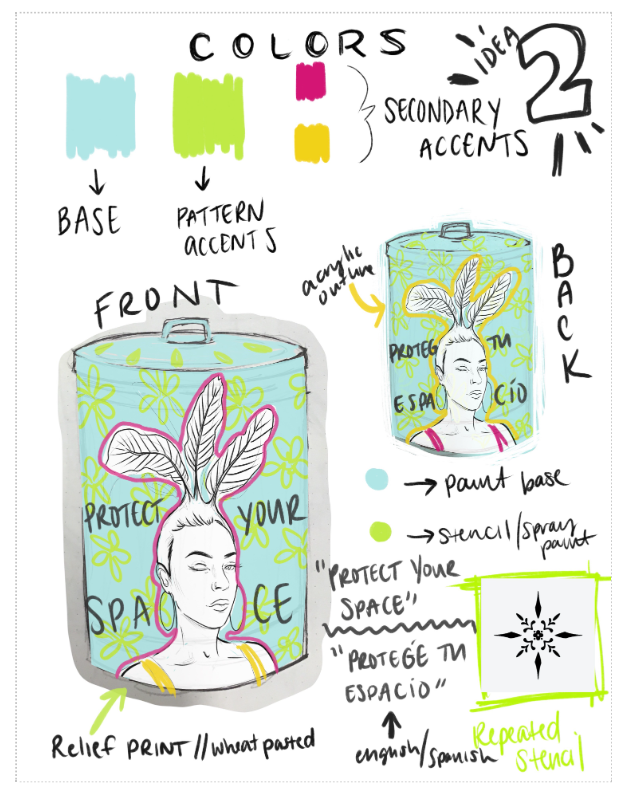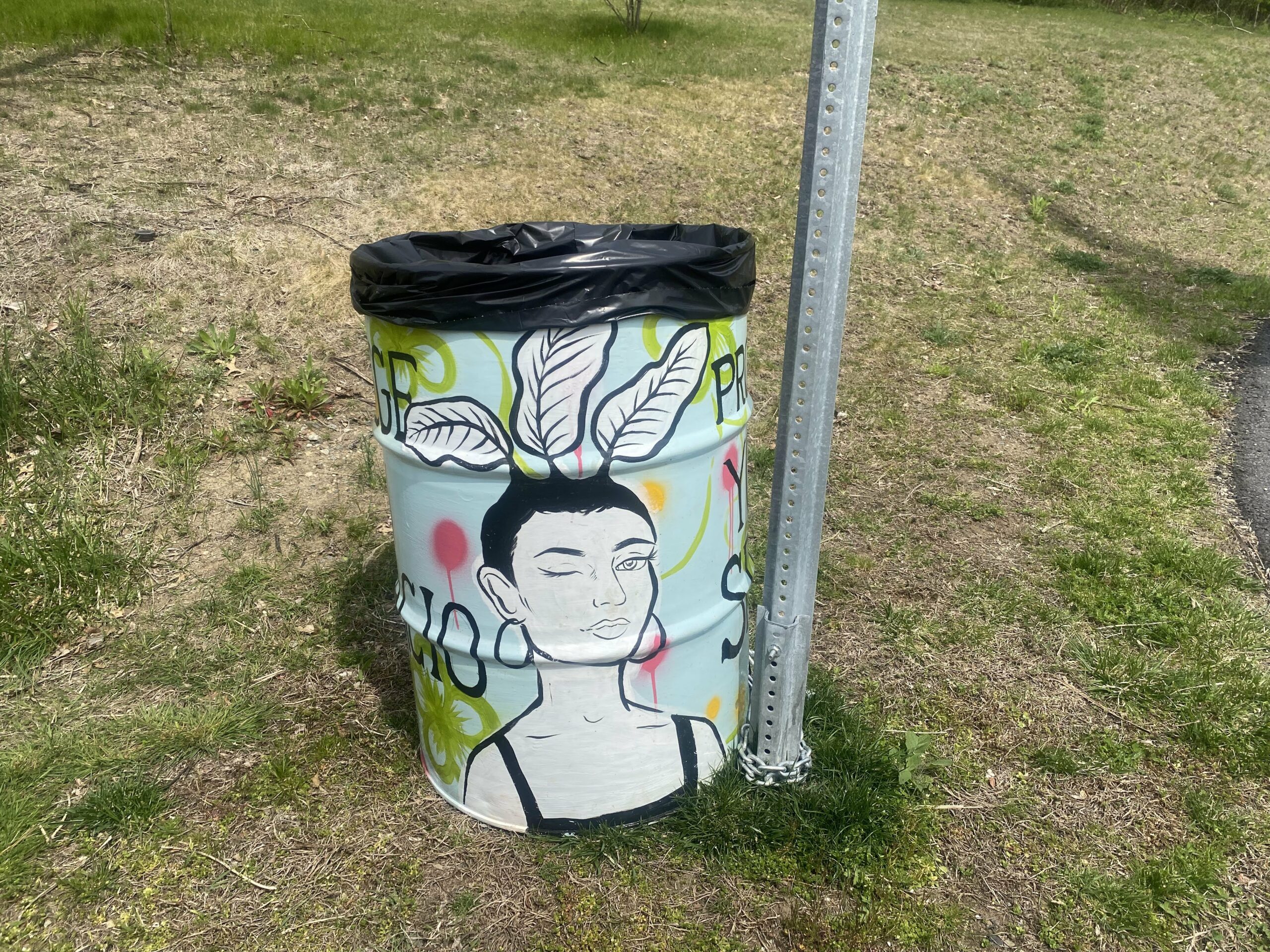
This season, the Woonasquatucket River Watershed Council (WRWC) is transforming how we think about trash — literally. Through our Litter-Free Woonasquatucket Campaign, we’re reimagining trash cans as functional art and bold public reminders to care for our shared environment.
One of the artists behind this movement is the dynamic Grechel Rosado.
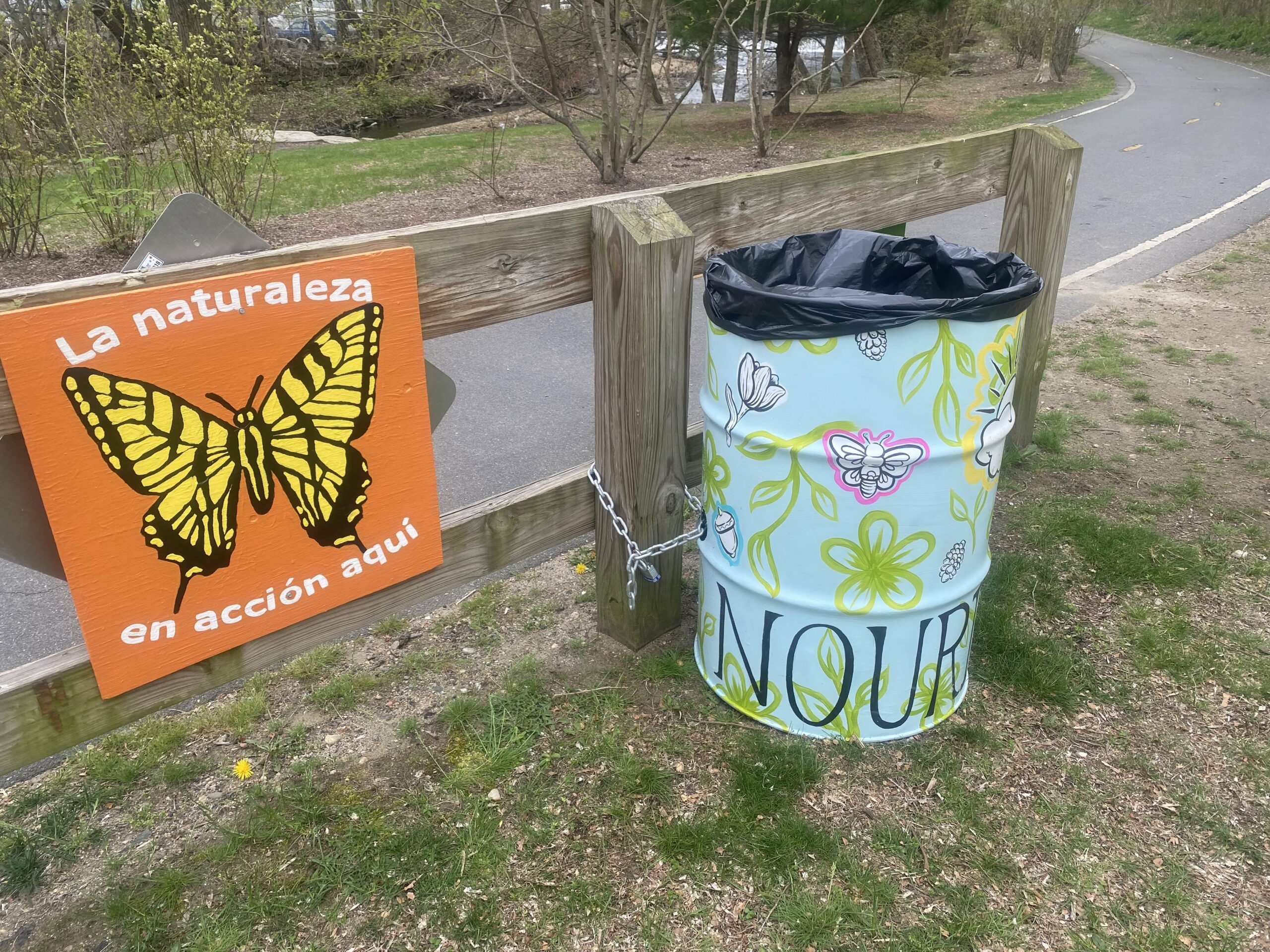
Meet Grechel Rosado
Bin Location: Eagle Square Pocket Park & Manton Outdoor Classroom
Grechel Rosado is a Latina printmaker and illustrator based in the Providence metro area. Born in Bayamón, Puerto Rico, her work is deeply rooted in her Latin heritage, blending vibrant color, personal storytelling, and bold visuals.
A graduate of UMass Dartmouth (Magna Cum Laude, BFA Illustration, minor in Printmaking), Grechel is the first in her family to achieve this academic milestone. She teaches Printmaking, Illustration, and Life Drawing, and is a proud member of Binch Press/Queer.Archive.Work — a Providence-based cooperative centering queer and BIPOC artists.
About the Design: “NOURISH ME / PROTECT YOUR SPACE”
Grechel’s bin design features repeated patterns, saturated colors, and graphic illustrations that command attention. Her messaging — “NOURISH ME” and “PROTECT YOUR SPACE” — functions as both literal instructions and metaphorical affirmations, inviting passersby to consider their relationship to public space.
“Aspects of my own artistic voice are evident in the design,” she explains. “But my goal was to create a deeper connection between people and place — to remind us of our duty to preserve the natural world, especially in the face of climate change that disproportionately affects global majority communities.”
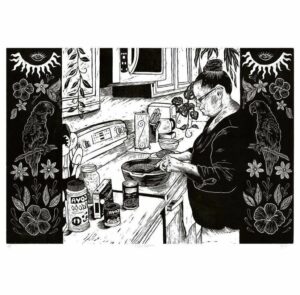
Why the Woonasquatucket?
Grechel first connected with the WRWC through her role as Programs Coordinator at WaterFire Providence, where she witnessed the intersection of public art and environmental stewardship firsthand.
“What drew me in,” she shares, “was the way WRWC uses art not just to beautify, but to tell stories, provide access, and build stronger, more informed communities.”
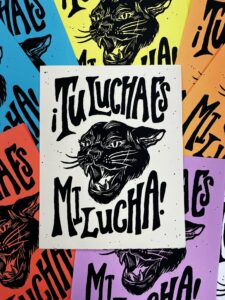
On Litter, Legacy, and Responsibility
“We hold a profound duty to protect our public spaces so that future generations can make memories in them,” Grechel says. “Littering is reckless and irresponsible — and I believe art can change how we approach that conversation.
Through art, we invite people in. We build awareness not with shame, but with connection.”
Explore More from
@yosoygrechel
yosoygrechel.com
